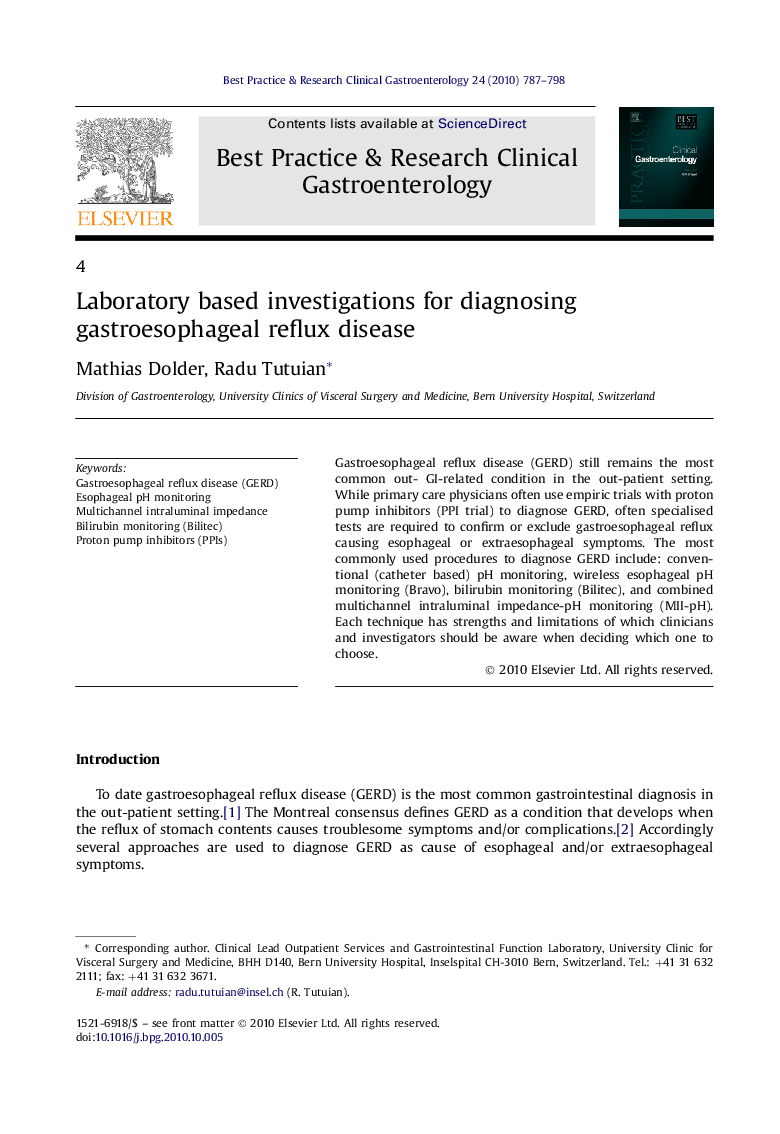| Article ID | Journal | Published Year | Pages | File Type |
|---|---|---|---|---|
| 3254374 | Best Practice & Research Clinical Gastroenterology | 2010 | 12 Pages |
Gastroesophageal reflux disease (GERD) still remains the most common out- GI-related condition in the out-patient setting. While primary care physicians often use empiric trials with proton pump inhibitors (PPI trial) to diagnose GERD, often specialised tests are required to confirm or exclude gastroesophageal reflux causing esophageal or extraesophageal symptoms. The most commonly used procedures to diagnose GERD include: conventional (catheter based) pH monitoring, wireless esophageal pH monitoring (Bravo), bilirubin monitoring (Bilitec), and combined multichannel intraluminal impedance-pH monitoring (MII-pH). Each technique has strengths and limitations of which clinicians and investigators should be aware when deciding which one to choose.
